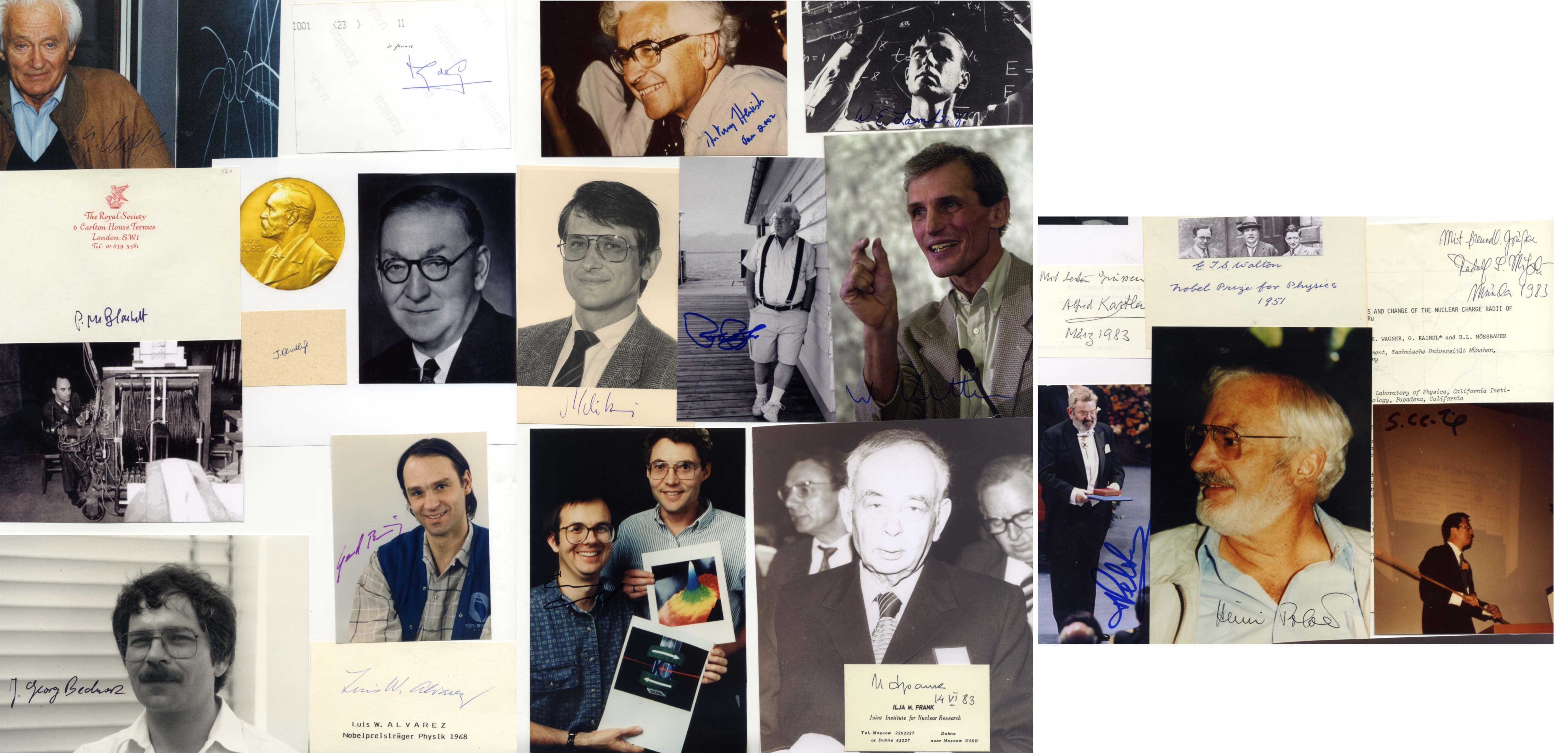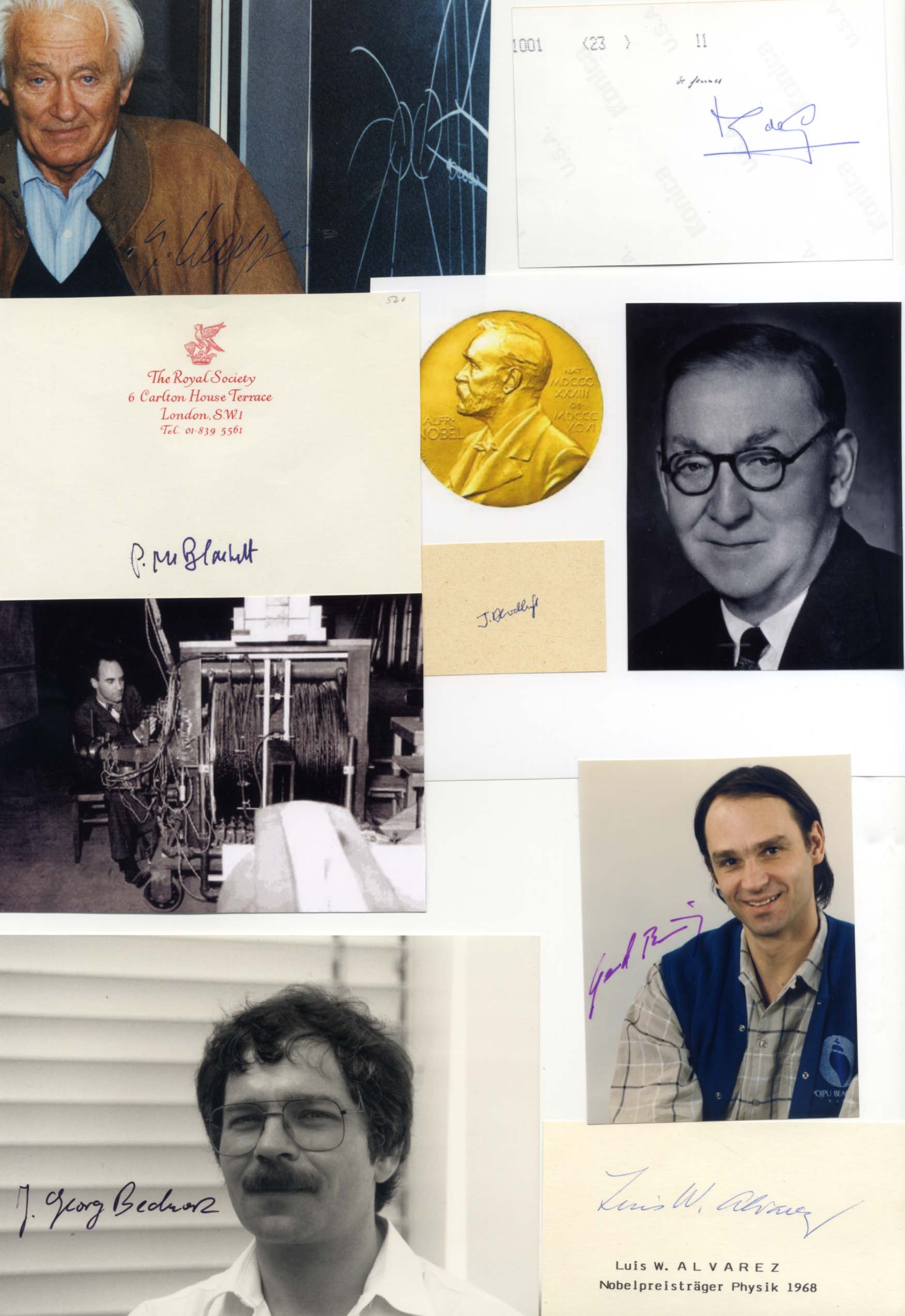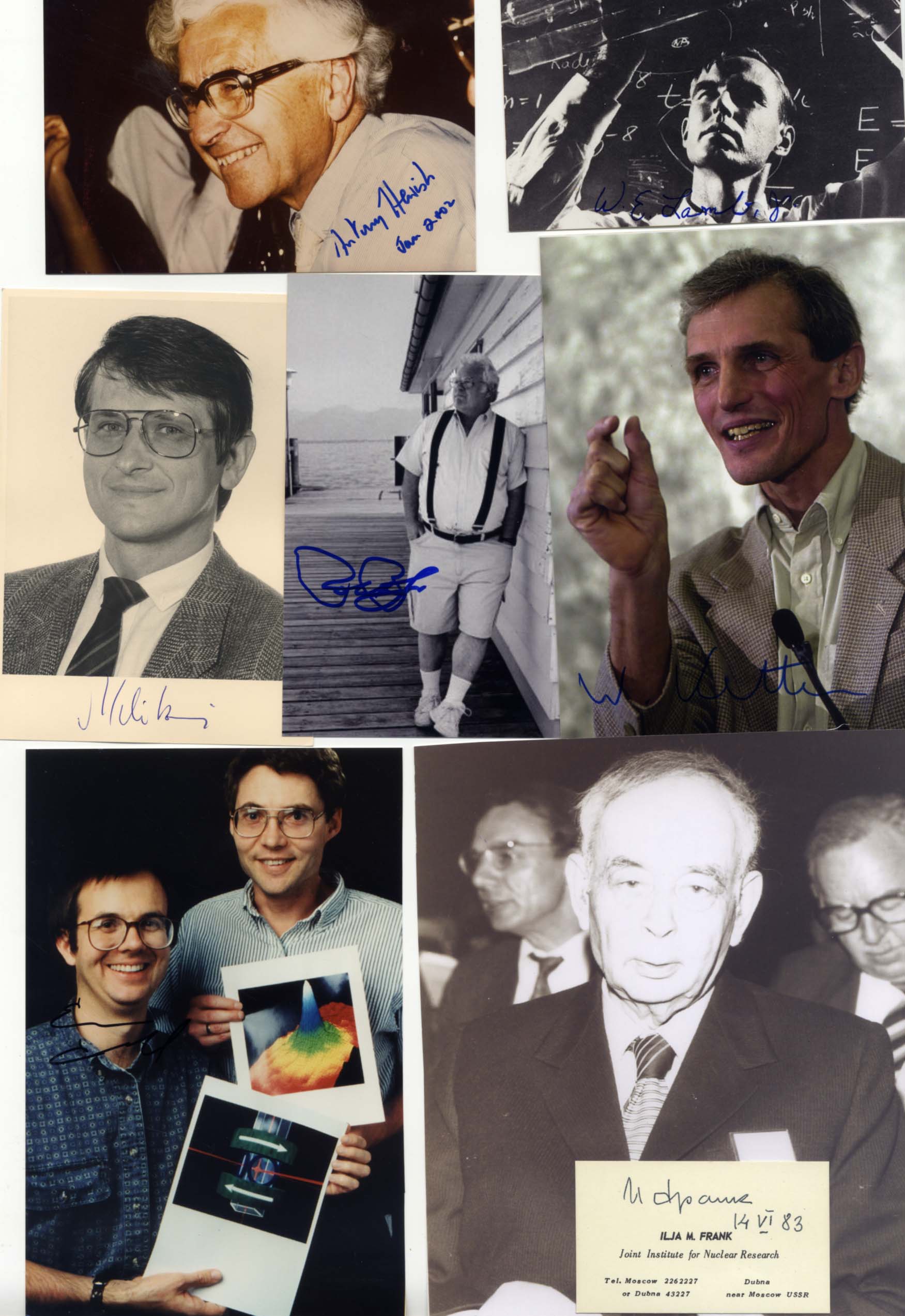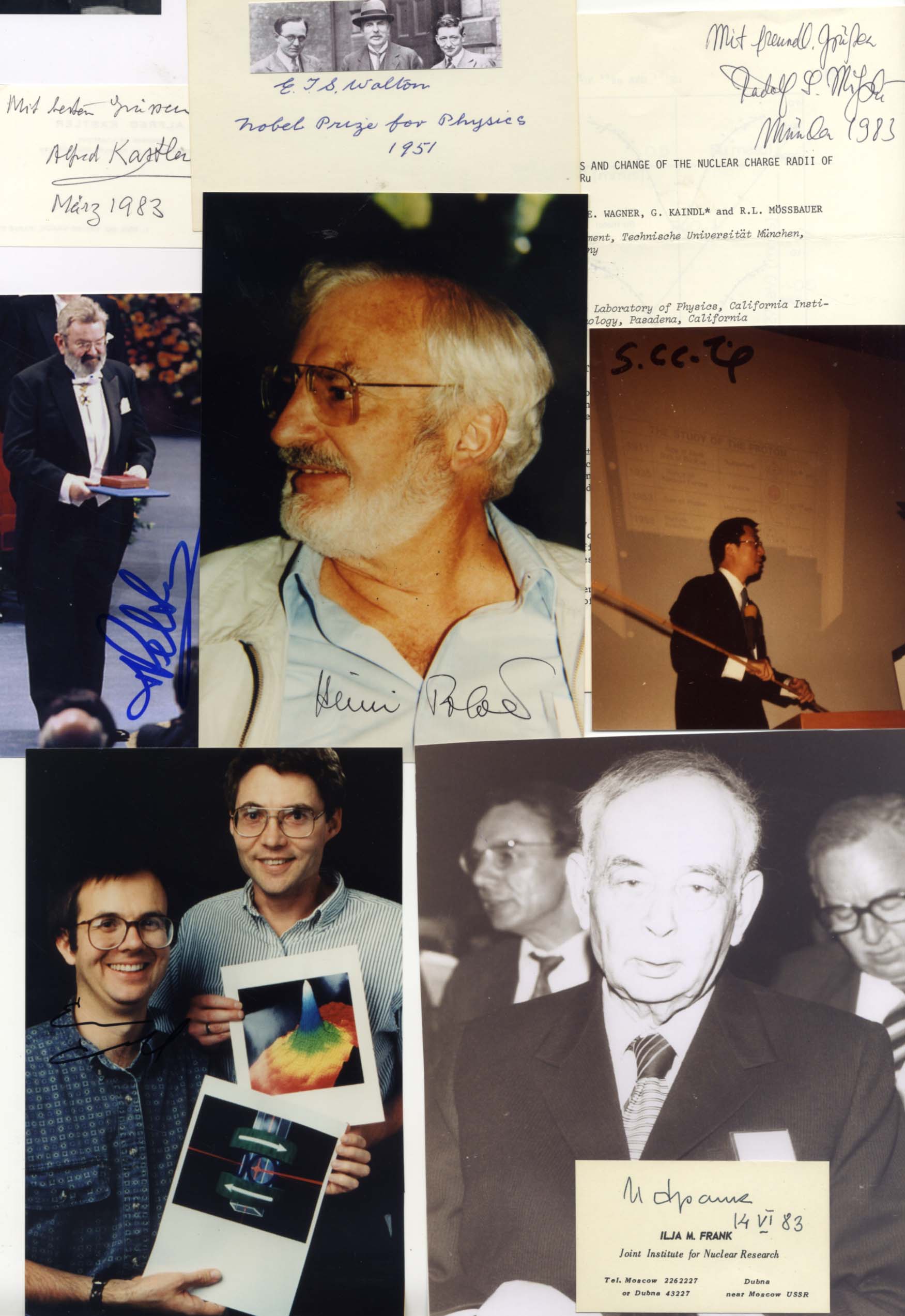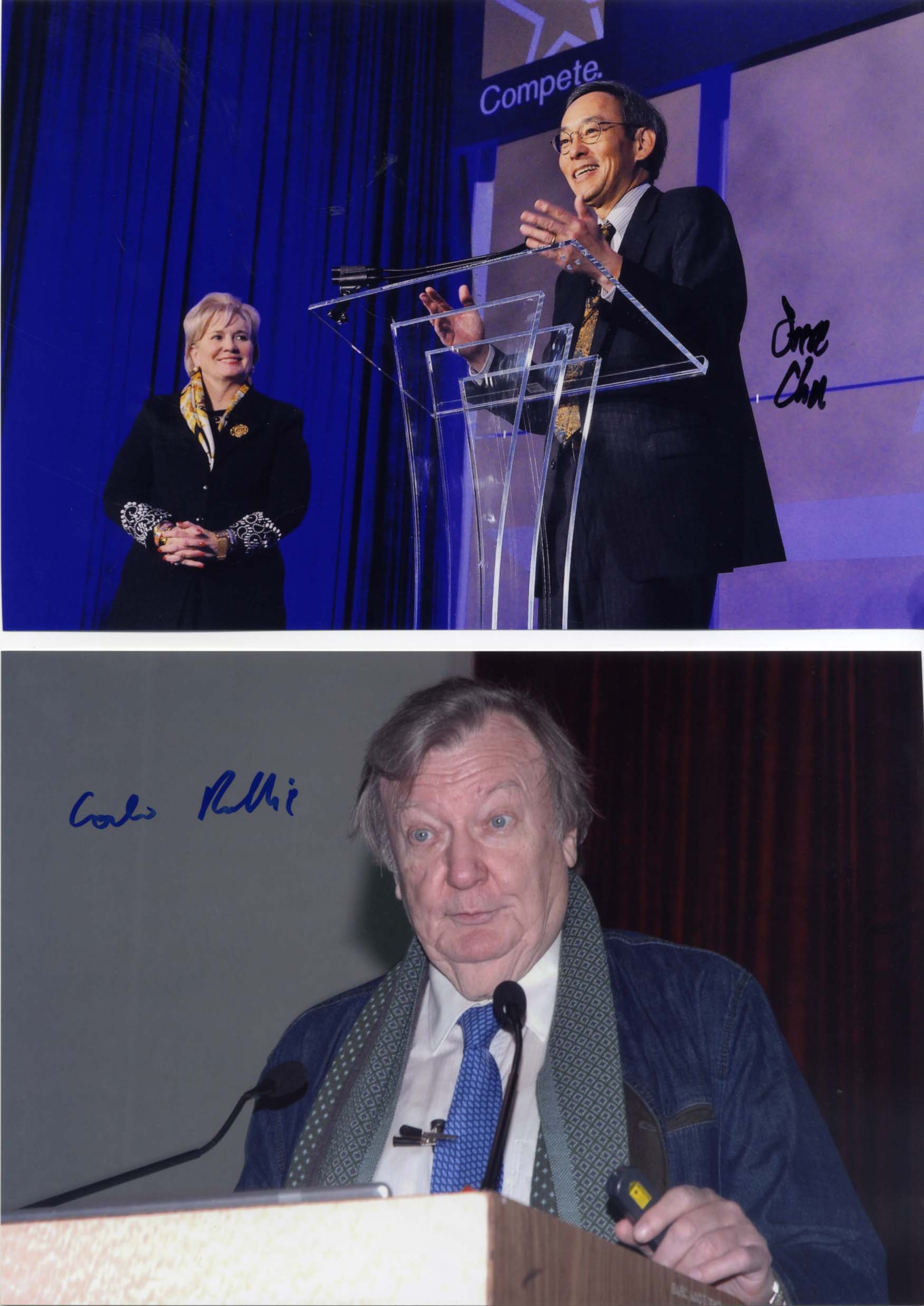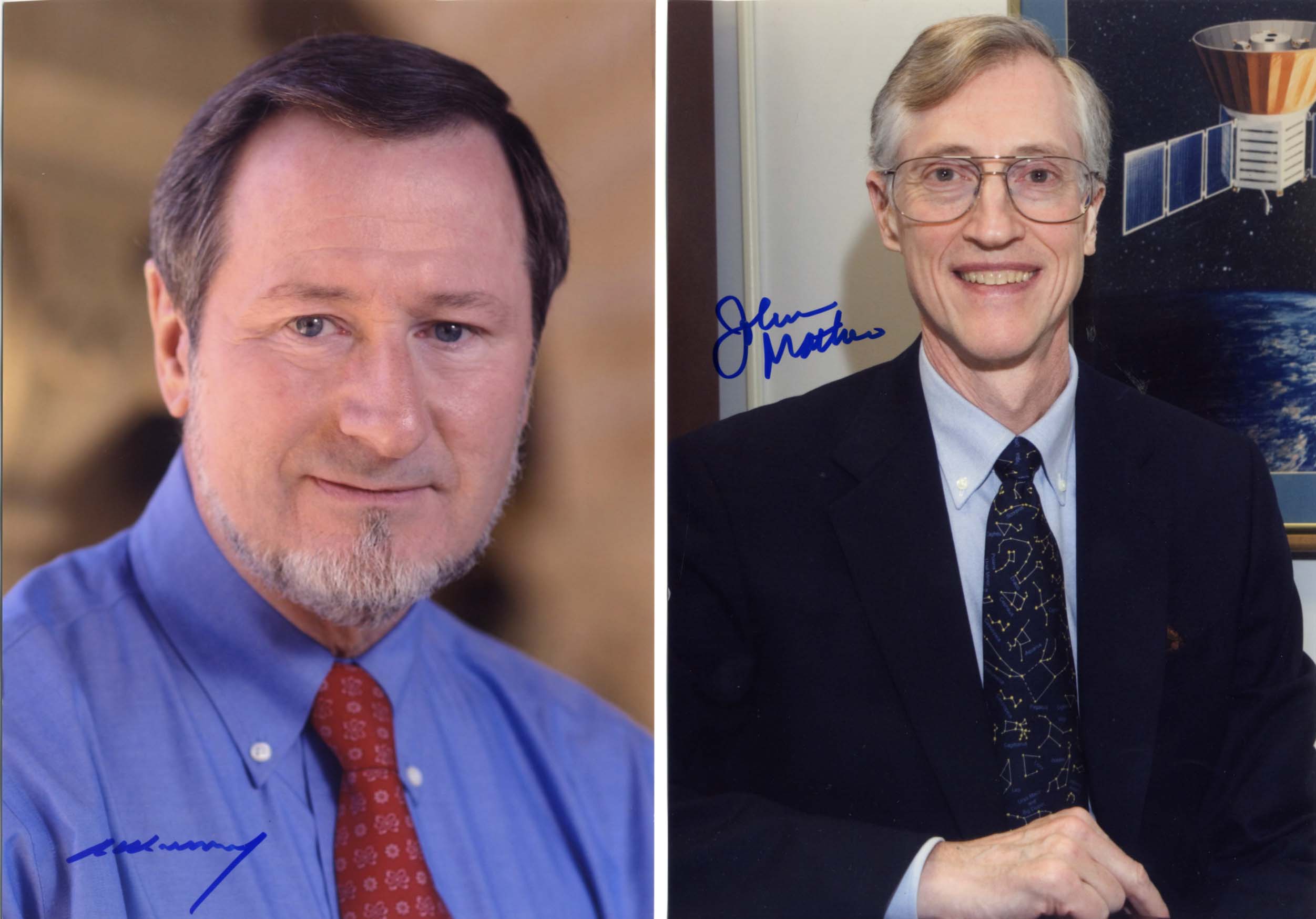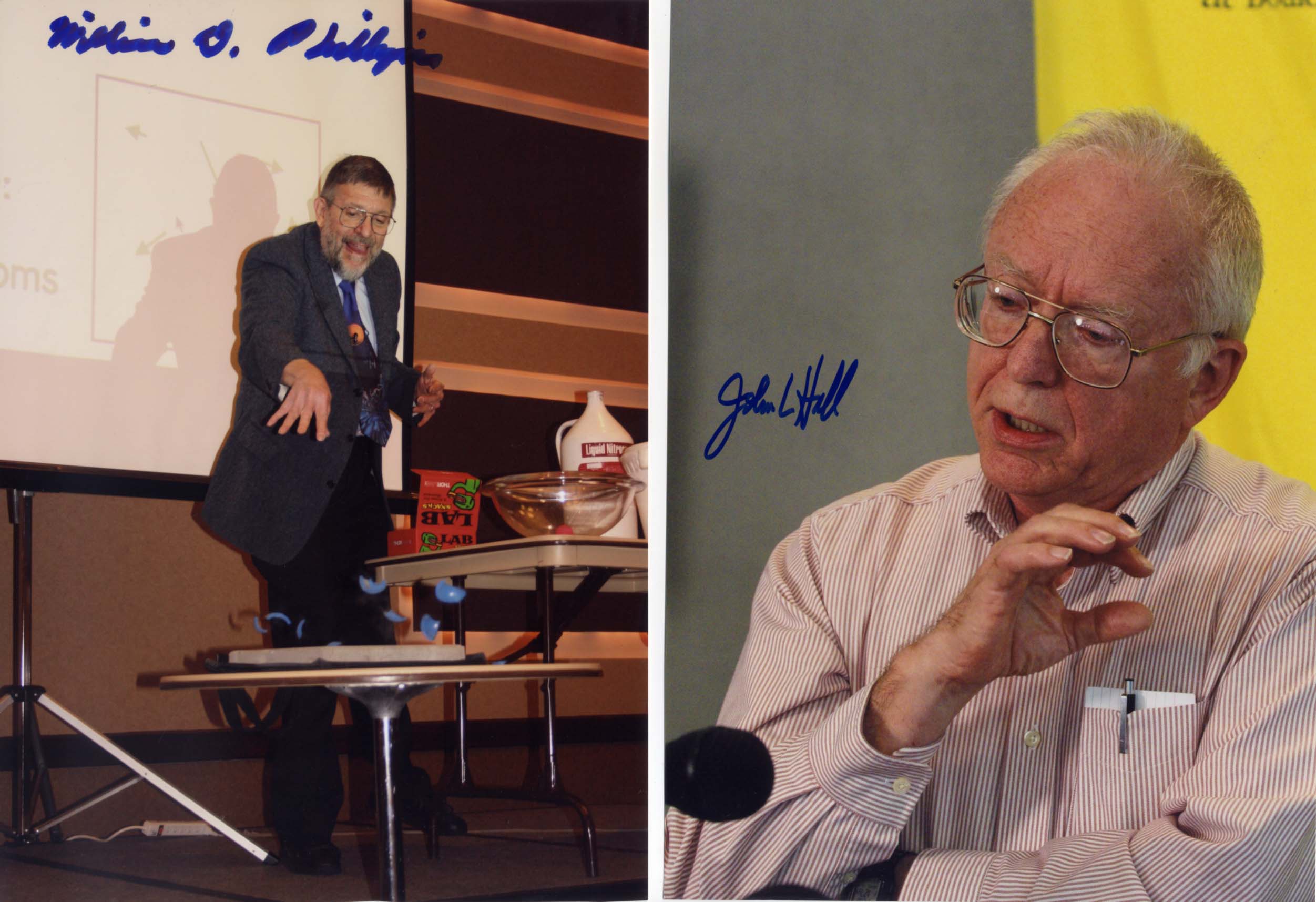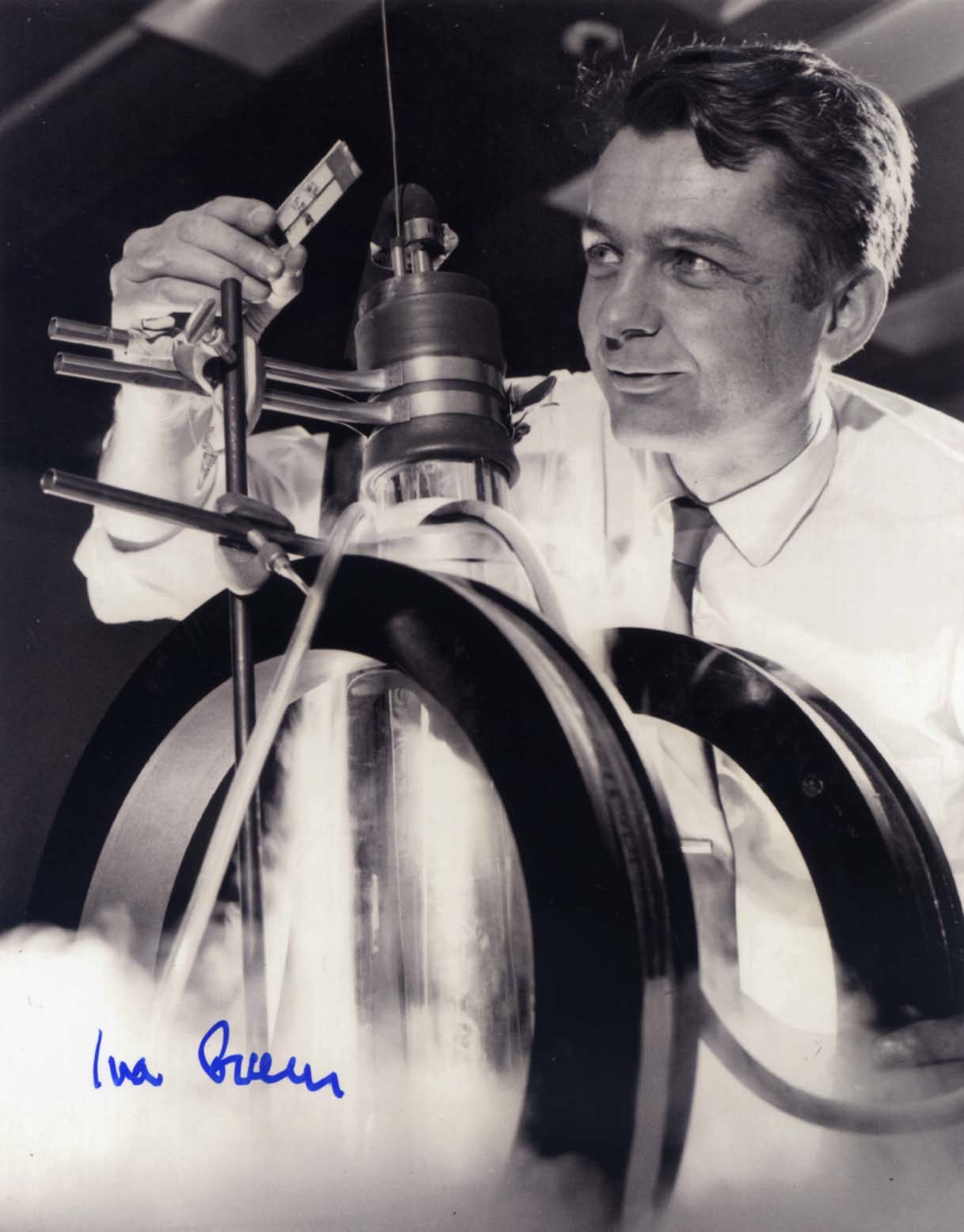27 eigenhändige Unterschriften von Physik-Nobelpreisträgern, großteils Photographien, in unterschiedlichen Größen, signiert mit unterschiedlichen Stiften - von L. W. Alvarez, S. C. G. Ting, A. Hewish, J. G. Bednorz, P. Blackett, S. Chu, J. D. Cockroft, G. Charpak, E. A. Cornell, F. Ilja, I. Giaever, J. L. Hall, W. Ketterle, W. W. Lamb, R. B. Laughlin, J. C. Mather, O. Douglas, W. D. Phillips, C. Rubbia, E. Walton, Martinus J. G. Veltman, R.L. Mößbauer, A. Kastler, G. Binnig, H. Rohrer und Martinus J. G. Veltman, teilweise mit leichten Gebrauchsspuren - insgesamt in nahezu sehr gutem Zustand.

